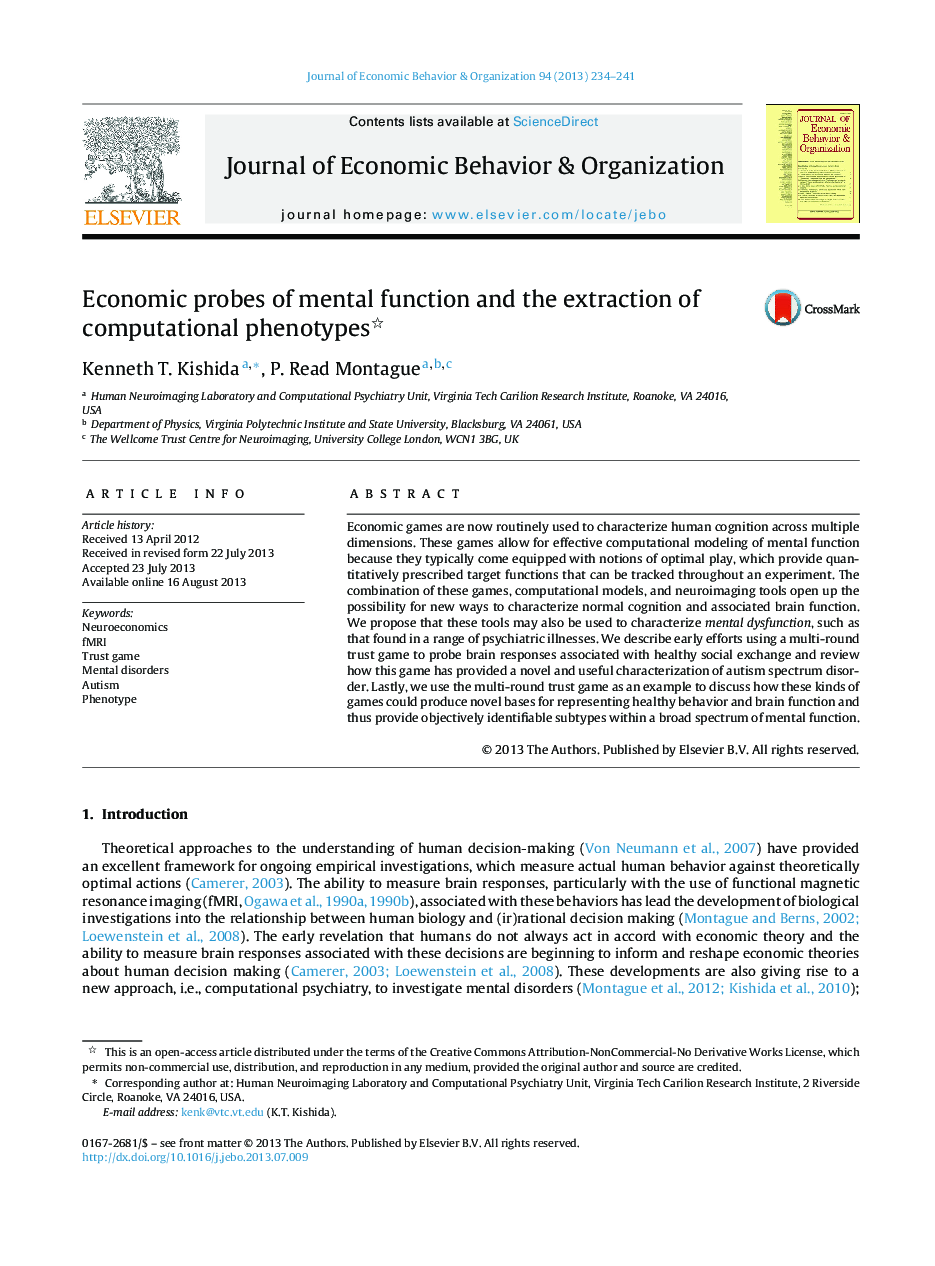| Article ID | Journal | Published Year | Pages | File Type |
|---|---|---|---|---|
| 7243691 | Journal of Economic Behavior & Organization | 2013 | 8 Pages |
Abstract
Economic games are now routinely used to characterize human cognition across multiple dimensions. These games allow for effective computational modeling of mental function because they typically come equipped with notions of optimal play, which provide quantitatively prescribed target functions that can be tracked throughout an experiment. The combination of these games, computational models, and neuroimaging tools open up the possibility for new ways to characterize normal cognition and associated brain function. We propose that these tools may also be used to characterize mental dysfunction, such as that found in a range of psychiatric illnesses. We describe early efforts using a multi-round trust game to probe brain responses associated with healthy social exchange and review how this game has provided a novel and useful characterization of autism spectrum disorder. Lastly, we use the multi-round trust game as an example to discuss how these kinds of games could produce novel bases for representing healthy behavior and brain function and thus provide objectively identifiable subtypes within a broad spectrum of mental function.
Related Topics
Social Sciences and Humanities
Economics, Econometrics and Finance
Economics and Econometrics
Authors
Kenneth T. Kishida, P. Read Montague,
